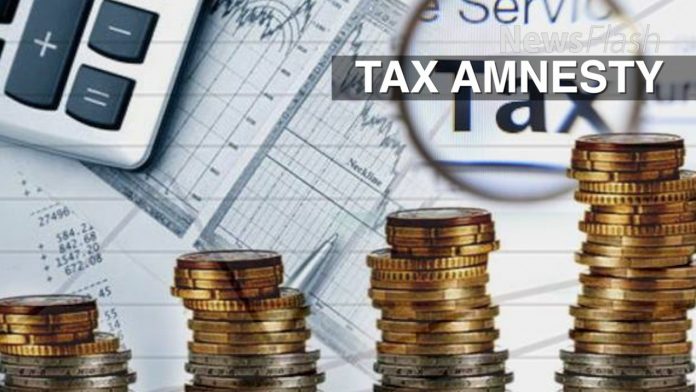
ISLAMABAD: Barely two days before the tax amnesty scheme is due for expiration, the Federal Board of Revenue (FBR) has decided to include offshore income under the purview of the amnesty scheme.
The revisions come barely 48 hours before the expiry of the tax amnesty scheme will create misconceptions among applicants but indicates the mishandling the government’s attempt by the FBR, reported Express Tribune.
The spokesman for the tax regulator, Dr Mohammad Iqbal said no extension was being mulled at this juncture, considering revisions are taking place despite the expiry date being so nearby.
This marks the first time that the tax regulator has included foreign income under the purview of the domestic tax amnesty scheme.
The FBR told for a resident Pakistani, the disclosure of income in Pakistan must include both within and foreign source.
Hence, those people who are qualified to file a declaration under the Act may include local as well as foreign source income, the FBR said.
Also, as per the Act of parliament, this scheme is only applicable to Pakistani citizens, however, the tax regulator has excluded non-resident Pakistani’s from the purview to ensure they declare their off-shore earned income.
The original scheme was extended on the pretext of the location of the assets, however, the tax regulator has introduced the concept of income to it and it was asset-driven.
The Foreign Assets Declaration Act is restricted to the disclosure of the asset, stated Dr Iqbal.
He added foreign-sourced income was not originally a part of the foreign asset.
Tax expert Ashfaq Tola said the tax regulator had disregarded the location of the asset whilst including the foreign source income under the purview of the amnesty scheme.
And the tax regulator stated declaration under the Voluntary Declaration of Domestic Assets Act, 2018 also included cash held in foreign currency in the country.
However, a major problem was about the valuation process of the foreign asset to which FBR maintained its previous opinion of valuing the assets at the current exchange rate.
The tax regulator described the historical cost of an overseas asset held in foreign currency will be converted into rupees at the central bank’s rate applicable between the said currency and Pak rupee on the date declaration happens.
The value of the overseas asset is stated as the fair market value (FMV) under section 5 (2) of the act. FMV under section 2(d) is said to the minimum price at the cost the asset has been acquired.
This revision was announced last week and was heavily criticized by tax and legal experts.
Furthermore, the tax regulator described for the purpose of declaring a hidden overseas asset, the cost of acquisition was the historical cost.
However, the historical cost would get determined at prevailing exchange rate, which would translate to an increase in effective tax rate than the stipulated 5 percent in the tax amnesty scheme.






